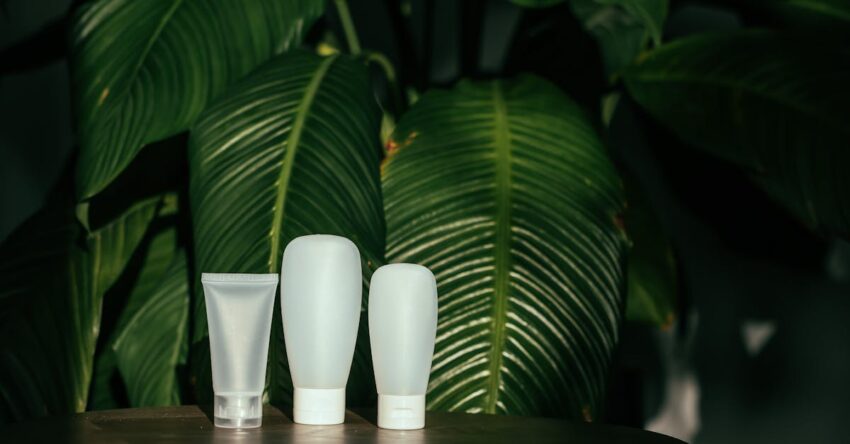Imagine a world where waste doesn’t pile up in landfills, harming your environment and the planet. That world is possible with biodegradable materials. These environmentally friendly options give you a chance to manage waste more effectively. Instead of relying on harmful materials that stick around forever, you can explore using renewable resources that naturally break down. This shift is not just vital; it’s exciting for anyone who cares about sustainability.
Considering eco-friendly materials can make a huge difference in your daily life. Think about sustainable construction, where buildings rise using organic materials that are gentle on the earth. Or the biodegradable polymers that turn into useful products without leaving a trace of toxins or causing greenhouse gases. With these options, waste turns into useful resources instead of pollution. You and others can contribute to a circular economy where everything gets reused.
Learn how these materials might change your approach to waste. Find out how biodegradable packaging can simplify your recycling process. Dive into the world of biodegradable polymers that hold the future of waste management. Transform your view on waste and its solutions today.

Photo provided by Cup of Couple on Pexels
Within the post
Understanding Biodegradable Materials
What Makes Them Different?
Biodegradable materials have a unique ability to break down naturally over time. Unlike traditional materials, they do not sit in landfills for hundreds of years. Instead, microorganisms help decompose these materials, turning them into harmless substances. This reduces the harmful impact on the environment. You might wonder how fast they decompose. Well, the biodegradation process varies depending on the type of material and environmental conditions.
Role in Sustainable Construction
In the world of construction, biodegradable materials play a vital role in enhancing eco-friendly building practices. They help in creating structures that are not only strong but also gentle on nature. Using such materials reduces the carbon footprint of buildings. Moreover, these materials help in reducing waste, as they naturally decompose rather than pollute the environment. It’s a sustainable choice that supports both current and future generations.

Photo provided by Tima Miroshnichenko on Pexels
Benefits of Biodegradable Materials in Construction
Eco-Friendly Materials in Use
Opting for biodegradable materials in construction promotes a greener environment. These materials minimize pollution and reduce the harmful impact of waste. One of the major benefits is that they help in cutting down the space needed for landfills. Plus, they contribute to the health of ecosystems by not introducing toxins. Therefore, their use in construction leads to a healthier planet.
Sustainable Engineering Solutions
Biodegradable materials encourage the use of renewable resources in construction. This is crucial for developing structures that last long but leave little negative impact. By incorporating these materials, engineers can design buildings that are sustainable and more considerate of the environment. This shift not only helps in conserving natural resources but also encourages innovation in sustainable construction methods.

Photo provided by Tima Miroshnichenko on Pexels
Applications of Biodegradable Polymers
Environmentally Friendly Foundations
Using biodegradable polymers can support the development of environmentally friendly foundations for buildings. These polymers are derived from natural sources, making them ideal for creating strong yet eco-conscious building bases. When used in construction foundations, they offer the dual benefit of strength and biodegradability. This ensures that constructions are robust and have a reduced environmental impact.
Utilization in Green Building Materials
Biodegradable polymers are perfect for biodegradable materials packaging and serve well in green building materials. They can be molded into various forms, making them versatile for different construction needs. These polymers help in reducing dependency on traditional, non-degradable building materials. By using them, you support innovation and sustainability in construction, paving the way for a cleaner future.

Photo provided by Callum Hilton on Pexels
Future of Natural Building Materials
Embracing Biodegradable Composites
The construction industry is shifting towards using natural and biodegradable composites. This shift is important for promoting the use of organic construction materials. These composites are made from a blend of biodegradable materials, offering high durability and low environmental impact. By embracing such materials, the industry can build structures that are healthier for the planet.
Impact on Sustainable Engineering
Biodegradable composites will play a key role in leading the next-generation construction. They offer an opportunity for sustainable engineering to flourish. By using these materials, engineers can design and build projects that are not only innovative but also environmentally responsible. The impact of using such materials is significant, as it pushes for the reduction of waste and promotes the conservation of resources. These steps ensure a sustainable future for the construction industry and the planet.
Embrace a Greener Future
Using nature-friendly materials in waste management offers big benefits. You help reduce pollution and, at the same time, support a cleaner planet. By opting for these options, you embrace a sustainable lifestyle. You not only lower waste but also decrease harmful emissions, making the environment healthier.
To start making a difference, explore using renewable materials in your daily life. Choose products that emphasize eco-friendly packaging. Consider joining a community initiative focused on sustainability. These steps help you reduce waste and promote environmental health.
Now is the perfect time to make a change. Take those small steps today and see the positive impact they bring. Begin your journey towards a sustainable future. You can be the change our planet needs. Start now!
